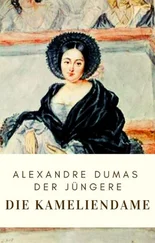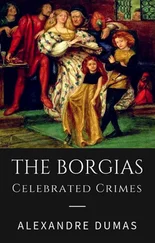Alexandre Dumas - Quotes and Images from Celebrated Crimes
Здесь есть возможность читать онлайн «Alexandre Dumas - Quotes and Images from Celebrated Crimes» — ознакомительный отрывок электронной книги совершенно бесплатно, а после прочтения отрывка купить полную версию. В некоторых случаях можно слушать аудио, скачать через торрент в формате fb2 и присутствует краткое содержание. Жанр: literature_19, foreign_antique, foreign_prose, на английском языке. Описание произведения, (предисловие) а так же отзывы посетителей доступны на портале библиотеки ЛибКат.
- Название:Quotes and Images from Celebrated Crimes
- Автор:
- Жанр:
- Год:неизвестен
- ISBN:нет данных
- Рейтинг книги:4 / 5. Голосов: 1
-
Избранное:Добавить в избранное
- Отзывы:
-
Ваша оценка:
- 80
- 1
- 2
- 3
- 4
- 5
Quotes and Images from Celebrated Crimes: краткое содержание, описание и аннотация
Предлагаем к чтению аннотацию, описание, краткое содержание или предисловие (зависит от того, что написал сам автор книги «Quotes and Images from Celebrated Crimes»). Если вы не нашли необходимую информацию о книге — напишите в комментариях, мы постараемся отыскать её.
Quotes and Images from Celebrated Crimes — читать онлайн ознакомительный отрывок
Ниже представлен текст книги, разбитый по страницам. Система сохранения места последней прочитанной страницы, позволяет с удобством читать онлайн бесплатно книгу «Quotes and Images from Celebrated Crimes», без необходимости каждый раз заново искать на чём Вы остановились. Поставьте закладку, и сможете в любой момент перейти на страницу, на которой закончили чтение.
Интервал:
Закладка:
Alexandre Dumas
Quotes and Images from Celebrated Crimes
A good novelist needs be a good historian. Alexandre Dumas was a novelist who knew his history. At least in his early works, he was meticulous in his research. This series of books are histories which place most romantic novels in the shade; they cover many centuries and many lands – those concerning the Rennaissance Popes are especially intriguing.
PASSAGES FROM EACH VOLUME
Dumas's 'Celebrated Crimes' was not written for children. The novelist has spared no language – has minced no words – to describe the violent scenes of a violent time.
INTRODUCTION
The contents of these volumes of 'Celebrated Crimes', as well as the motives which led to their inception, are unique. They are a series of stories based upon historical records, from the pen of Alexandre Dumas, pere, when he was not "the elder," nor yet the author of D'Artagnan or Monte Cristo, but was a rising young dramatist and a lion in the literary set and world of fashion.
Dumas, in fact, wrote his 'Crimes Celebres' just prior to launching upon his wonderful series of historical novels, and they may therefore be considered as source books, whence he was to draw so much of that far-reaching and intimate knowledge of inner history which has perennially astonished his readers. The Crimes were published in Paris, in 1839-40, in eight volumes, comprising eighteen titles – all of which now appear in the present carefully translated text. The success of the original work was instantaneous. Dumas laughingly said that he thought he had exhausted the subject of famous crimes, until the work was off the press, when he immediately became deluged with letters from every province in France, supplying him with material upon other deeds of violence! The subjects which he has chosen, however, are of both historic and dramatic importance, and they have the added value of giving the modern reader a clear picture of the state of semi-lawlessness which existed in Europe, during the middle ages. "The Borgias, the Cenci, Urbain Grandier, the Marchioness of Brinvilliers, the Marchioness of Ganges, and the rest – what subjects for the pen of Dumas!" exclaims Garnett.
Space does not permit us to consider in detail the material here collected, although each title will be found to present points of special interest. The first volume comprises the annals of the Borgias and the Cenci. The name of the noted and notorious Florentine family has become a synonym for intrigue and violence, and yet the Borgias have not been without stanch defenders in history.
Another famous Italian story is that of the Cenci. The beautiful Beatrice Cenci – celebrated in the painting of Guido, the sixteenth century romance of Guerrazi, and the poetic tragedy of Shelley, not to mention numerous succeeding works inspired by her hapless fate – will always remain a shadowy figure and one of infinite pathos.
The second volume chronicles the sanguinary deeds in the south of France, carried on in the name of religion, but drenching in blood the fair country round about Avignon, for a long period of years.
The third volume is devoted to the story of Mary Queen of Scots, another woman who suffered a violent death, and around whose name an endless controversy has waged. Dumas goes carefully into the dubious episodes of her stormy career, but does not allow these to blind his sympathy for her fate. Mary, it should be remembered, was closely allied to France by education and marriage, and the French never forgave Elizabeth the part she played in the tragedy.
The fourth volume comprises three widely dissimilar tales. One of the strangest stories is that of Urbain Grandier, the innocent victim of a cunning and relentless religious plot. His story was dramatised by Dumas, in 1850. A famous German crime is that of Karl-Ludwig Sand, whose murder of Kotzebue, Councillor of the Russian Legation, caused an international upheaval which was not to subside for many years.
An especially interesting volume is number six, containing, among other material, the famous "Man in the Iron Mask." This unsolved puzzle of history was later incorporated by Dumas in one of the D'Artagnan Romances a section of the Vicomte de Bragelonne, to which it gave its name. But in this later form, the true story of this singular man doomed to wear an iron vizor over his features during his entire lifetime could only be treated episodically. While as a special subject in the Crimes, Dumas indulges his curiosity, and that of his reader, to the full. Hugo's unfinished tragedy,'Les Jumeaux', is on the same subject; as also are others by Fournier, in French, and Zschokke, in German.
Other stories can be given only passing mention. The beautiful poisoner, Marquise de Brinvilliers, must have suggested to Dumas his later portrait of Miladi, in the Three Musketeers, the mast celebrated of his woman characters. The incredible cruelties of Ali Pacha, the Turkish despot, should not be charged entirely to Dumas, as he is said to have been largely aided in this by one of his "ghosts," Mallefille.
"Not a mere artist" – writes M. de Villemessant, founder of the Figaro, – "he has nevertheless been able to seize on those dramatic effects which have so much distinguished his theatrical career, and to give those sharp and distinct reproductions of character which alone can present to the reader the mind and spirit of an age. Not a mere historian, he has nevertheless carefully consulted the original sources of information, has weighed testimonies, elicited theories, and.. has interpolated the poetry of history with its most thorough prose."
THE BORGIAS
Indeed, Caesar (Borgia) had the power of persuasion as a gift from heaven; and though they perfectly well knew his duplicity, they had no power of resisting, not so much his actual eloquence as that air of frank good-nature which Macchiavelli so greatly admired, and which indeed more than once deceived even him, wily politician as he was.
Конец ознакомительного фрагмента.
Текст предоставлен ООО «ЛитРес».
Прочитайте эту книгу целиком, купив полную легальную версию на ЛитРес.
Безопасно оплатить книгу можно банковской картой Visa, MasterCard, Maestro, со счета мобильного телефона, с платежного терминала, в салоне МТС или Связной, через PayPal, WebMoney, Яндекс.Деньги, QIWI Кошелек, бонусными картами или другим удобным Вам способом.
Интервал:
Закладка:
Похожие книги на «Quotes and Images from Celebrated Crimes»
Представляем Вашему вниманию похожие книги на «Quotes and Images from Celebrated Crimes» списком для выбора. Мы отобрали схожую по названию и смыслу литературу в надежде предоставить читателям больше вариантов отыскать новые, интересные, ещё непрочитанные произведения.
Обсуждение, отзывы о книге «Quotes and Images from Celebrated Crimes» и просто собственные мнения читателей. Оставьте ваши комментарии, напишите, что Вы думаете о произведении, его смысле или главных героях. Укажите что конкретно понравилось, а что нет, и почему Вы так считаете.












